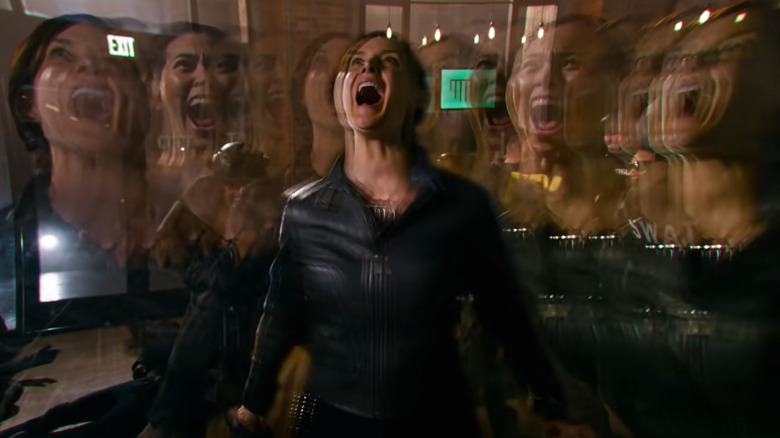New Video Reveals Why You Can't Understand Dialogue In Movies Anymore
Most people probably think understanding film dialogue is one of the more important parts of enjoying a film. Whether characters are delivering vital exposition, making a joke or just introducing themselves for the first time, it seems pretty obvious that audience members need to be able to follow what is being said on screen, at least most of the time.
However, a recent trend in film seems to disregard this notion entirely. Steven Spielberg made the interesting decision to forego foreign-language subtitles in "West Side Story," a choice that seemed to win him praise from some people, while others questioned the practicality. Additionally, though director Christopher Nolan is loved by film fans for crafting complex narratives, few are likely to praise the director's sound mixing priorities. In 2020, Nolan even admitted that a number of other directors have complained to him about being unable to understand lines of dialogue spoken throughout successful films like "Tenet," "Interstellar," and "The Dark Knight Rises."
For an in-depth look at this phenomenon, check out this video where /Film does a deep dive into the various questions surrounding the technical aspects of sound in film. The video contains information from numerous interviews with sound experts who seek to understand why the problem exists and, perhaps even more importantly, offer a few possible methods to fix it.
There are a number of reasons behind the problem
Fo research on the topic, /Film talked with a variety of Hollywood sound professionals, including a number of people so gifted in the field that they have won Academy Awards for their work. When talking with Mark Mangini, one of two sound designers who took home an Oscar for work on "Mad Max: Fury Road," /Film discovered that no singe issue has created the problem. "It's really a gumbo, an accumulation of problems that have been exacerbated over the last 10 years," Mangini said.
The answers to why this problem exists are truly as varied as the plethora of jobs required to actually make a movie and deliver it to audiences. From directors who just don't care to actors who speak softly and even theaters that simply don't deliver the best sound quality, there are plenty of steps along the way where sound can suffer. With this in mind, the project of improving dialogue intelligibility is certainly a big job to tackle, but also one sure to be worthwhile to film lovers. If it means the difference between an enjoyable movie-going experience and just an expensive, mystifying one, we'd definitely hope that Hollywood would be willing to do whatever it takes.
